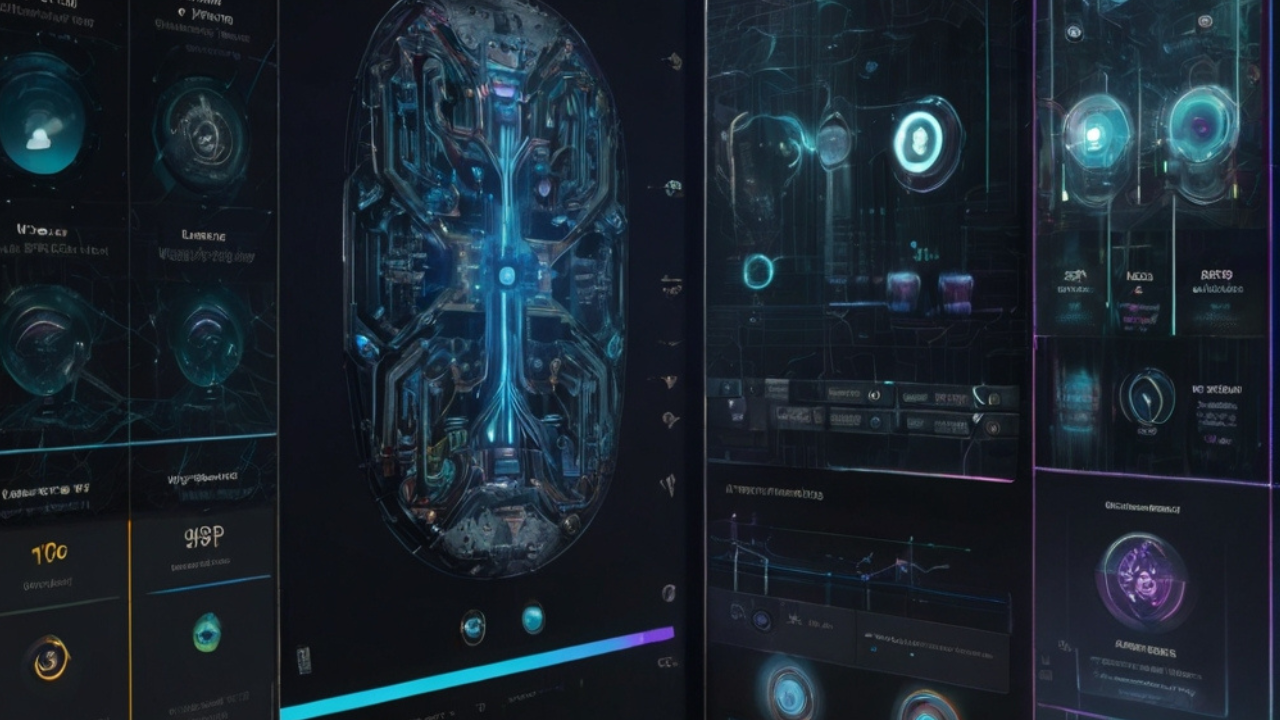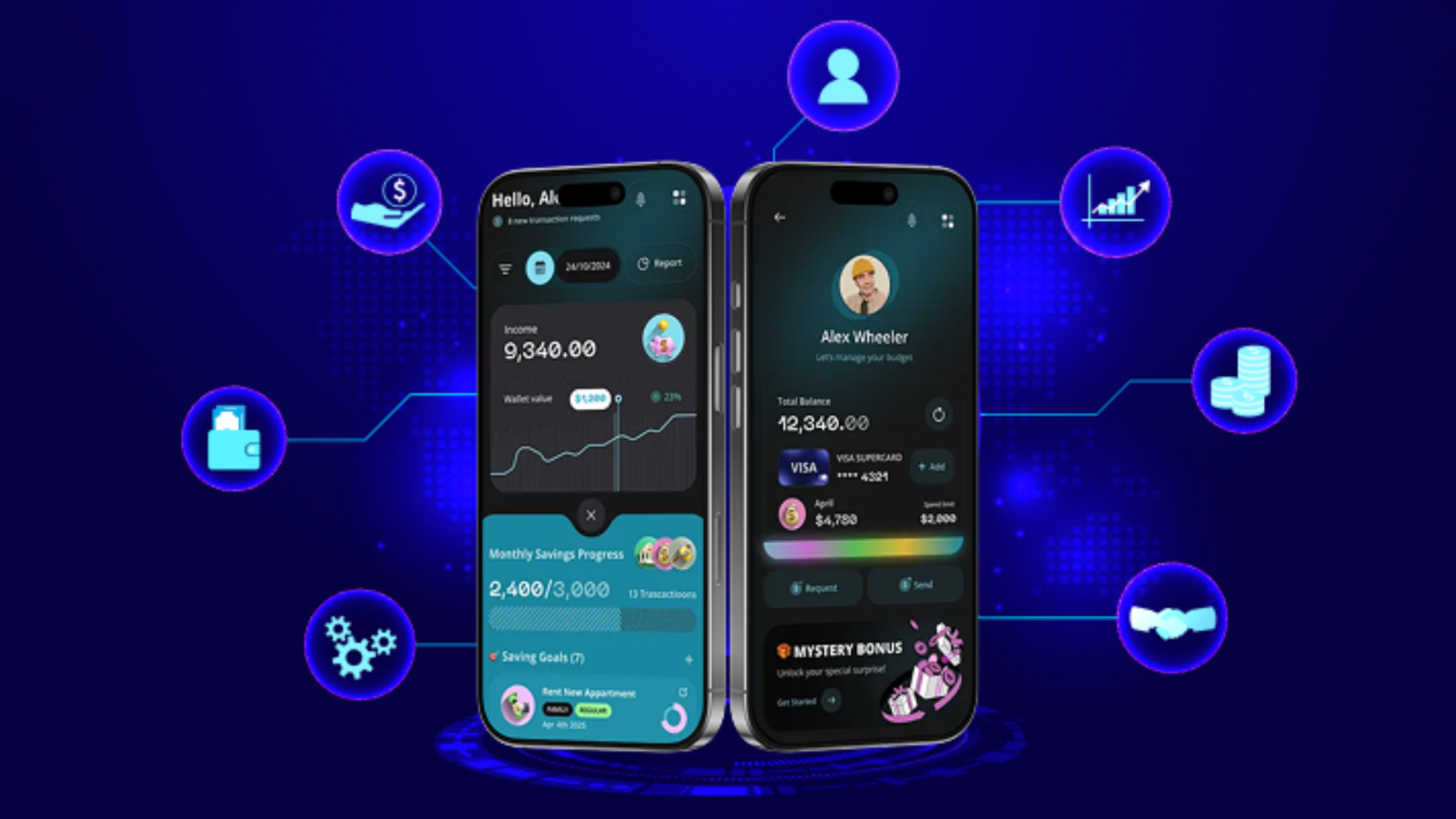The impact of Artificial Intelligence (AI) on UI has been transforming industries and professions at an unprecedented pace. One area where AI’s impact is particularly noticeable is in User Interface (UI) design. With the advent of AI-powered design tools and platforms, some fear that AI might eventually replace UI designers. However, while AI significantly influences the field, it is unlikely to render human designers obsolete. Here’s why AI won’t replace UI designers, but rather, will enhance their capabilities and reshape their roles.
1. The Creative Essence of AI on UI Design
Creativity and Innovation:
At the core of UI design lies creativity. UI designers are not just creating interfaces; they are crafting experiences that are aesthetically pleasing and user-friendly. This process involves understanding human emotions, cultural nuances, and individual preferences. While AI can analyze data and identify patterns, it lacks the innate creativity and emotional intelligence that human designers bring to the table.
Artistic Vision:
UI design is as much about artistry as it is about functionality. Designers often draw inspiration from various sources, including art, nature, and personal experiences. This artistic vision is something that AI, which relies on existing data and patterns, cannot replicate. The ability to think outside the box and come up with unique, innovative designs is a human trait that AI cannot mimic.
2. Understanding Human Emotions and Empathy
User-Centered Design:
Successful UI design revolves around understanding the needs and behaviors of users. This requires empathy, an understanding of human psychology, and the ability to conduct user research effectively. While AI can analyze user data, it cannot understand the emotional and psychological aspects of user interactions to the same depth as a human designer.
Personal Touch:
Human designers can add a personal touch to their work, making interfaces more relatable and engaging. They can create designs that resonate with users on an emotional level, fostering a deeper connection between the user and the product. This personal touch is something that AI, which operates on logic and data, cannot provide.
3. Complex Problem-Solving and Critical Thinking
Addressing Ambiguity:
UI design often involves dealing with ambiguous and complex problems that do not have straightforward solutions. Designers must navigate these challenges, balancing various constraints and finding creative solutions. AI, on the other hand, excels in solving well-defined problems but struggles with ambiguity and complexity.
Holistic Perspective:
Human designers take a holistic approach to problem-solving, considering the broader context of the project, including business goals, user needs, and technical constraints. This holistic perspective is essential for creating effective and cohesive designs. AI tools, while powerful, typically focus on specific aspects of design and lack the ability to integrate multiple perspectives seamlessly.
4. Collaboration and Communication
Team Dynamics:
UI design is often a collaborative effort involving multiple stakeholders, including developers, product managers, and marketing teams. Effective communication and collaboration are crucial for the success of a design project. Human designers excel in these areas, bringing diverse teams together and ensuring that everyone is aligned with the project’s goals.
Iterative Process:
Design is an iterative process that involves feedback and revisions. Human designers can interpret feedback, engage in meaningful discussions, and make informed decisions to refine their designs. AI tools can assist in this process but cannot replace the nuanced understanding and judgment that human designers bring to iterative design cycles.
5. Ethical Considerations
Design Ethics:
UI designers often grapple with ethical considerations, such as ensuring inclusivity, accessibility, and avoiding dark patterns that manipulate users. These ethical decisions require a deep understanding of human values and societal norms, which AI lacks. Human designers are better equipped to make ethical design choices and ensure that their designs adhere to ethical standards.
Responsibility and Accountability:
Designers hold responsibility for their work and its impact on users. They are accountable for the choices they make, which can significantly affect user experience and well-being. This sense of responsibility is intrinsic to human designers and cannot be instilled in AI systems.
6. AI as a Tool, Not a Replacement
Enhancing Capabilities:
AI should be viewed as a powerful tool that can enhance the capabilities of UI designers rather than replace them. AI-powered design tools can automate repetitive tasks, analyze user data, and provide insights that help designers make informed decisions. By automating mundane aspects of design, AI allows designers to focus more on creativity and problem-solving.
Augmenting Human Intelligence:
AI can augment human intelligence by providing designers with new ways to explore ideas and experiment with designs. For instance, AI can generate multiple design variations, identify usability issues, and suggest improvements. These capabilities can significantly enhance the design process, enabling designers to work more efficiently and effectively.
Conclusion
While AI is transforming UI design by automating tasks, providing data-driven insights, and augmenting human capabilities, it cannot replace the unique qualities that human designers bring to the table. The creative essence, empathy, complex problem-solving, collaboration, ethical considerations, and personal touch that human designers contribute are irreplaceable. AI serves as a valuable tool that empowers designers, allowing them to push the boundaries of what’s possible in UI design. As the field continues to evolve, the synergy between AI and human designers will lead to even more innovative and user-centric designs, enhancing the overall user experience.








